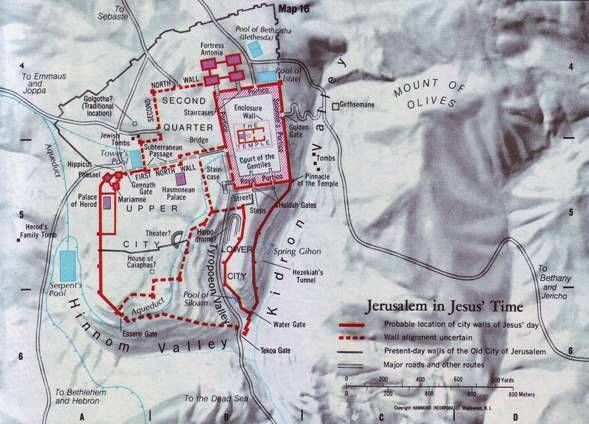Matthew 21:12-17, Mark 11:12-19, and Luke 19:45-48
Yesterday’s pictorial image was well received, so here’s another – a close-up of the Temple. The Chronological Study Bible indicates that the full Temple was 500 yards long and 325 yards wide. Inside that larger Temple was another structure measuring 150 yards by 100 yards. To the lower right of the picture below the artists show a size comparison with a football field which measures 100 yards long by 53 feet wide. Inside this larger Temple area there are four courts. #1 below is the “Holy of Holies” which only the High Priest can enter; #3 is the Priests Court (or the Court of Israel) which only Jewish men can enter; #9 is the Court of Women which any Jews could enter; finally the largest area is the Court of the Gentiles, open to people of all races and creeds. This is the area where Jesus “attacked”, where merchants were selling sacrificial animals and changing money.
The Temple faces east; as I noted yesterday, the direction Jesus would go in the evening as He lodged in Bethany. The picture below has a label, “Solomon’s Portico (Eastern)”. Solomon’s Portico is a covered area that actually extends around the entire outer perimeter of the Court of the Gentiles. It is likely that Jesus did much of His teaching in these areas.

Enjoy!
See also:
